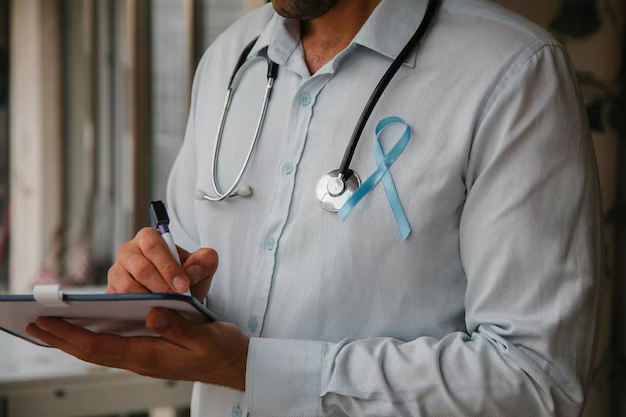Understanding Your Chances of Getting Cancer: What You Should Know
In today’s world, cancer stands as one of the most talked-about health concerns, affecting millions globally each year. But what are the chances of getting cancer, and how can one factor these probabilities into their personal health journey? Our exploration dives into the realities of cancer risks, dispels myths, and equips you with knowledge to navigate this complex topic confidently.
Quantifying Cancer Risk: What Do the Numbers Say?
The Lifetime Risk of Cancer
The phrase "lifetime risk" commonly comes up when discussing cancer statistics. This refers to the probability of being diagnosed with cancer at some point during one's lifetime. In the United States, the lifetime risk for developing any type of cancer is approximately 40% for men and 39% for women. These numbers might sound daunting, but they encompass a broad spectrum of cancer types, each with varying incidence rates.
Factors Influencing Cancer Risk
Cancer risk isn't solely determined by chance. Multiple variables play essential roles:
- Genetic Predisposition: Family history and genetic mutations, like BRCA1 and BRCA2 for breast cancer, can significantly heighten risk.
- Lifestyle Choices: Smoking, diet, and physical activity levels are critical factors.
- Environmental Exposures: Prolonged exposure to carcinogens like asbestos and ultraviolet radiation increases risk.
- Age: The likelihood of cancer increases with age, as cellular damage accumulates over time.
The Role of Genetics and Family History
Understanding Hereditary Cancer
Around 5-10% of all cancers are hereditary, occurring due to genetic mutations passed down through families. If you have close relatives diagnosed with cancer, it may be beneficial to discuss genetic testing with a healthcare provider.
Common Hereditary Cancers
Some cancers known to be hereditary include:
- Breast and Ovarian Cancer: Often linked to BRCA mutations.
- Colorectal Cancer: Lynch syndrome is a genetic condition that increases risk.
- Prostate Cancer: Family history can be a key risk factor.
Lifestyle and Cancer: Choices You Can Control
Impact of Diet and Exercise
A balanced diet rich in fruits, vegetables, and whole grains, paired with regular physical activity, can lower the risk of various cancers. Obesity is linked with higher risks of cancers like breast, colon, and kidney cancer.
Smoking and Alcohol: Hazardous Habits
Tobacco use is the most significant modifiable risk factor for cancer. It’s responsible for about 22% of cancer deaths annually. Similarly, excessive alcohol consumption is associated with increased risks for cancers like mouth, throat, liver, and breast cancer.
Environmental and Occupational Risks
Certain professions expose individuals to harmful substances. For instance, construction workers may face asbestos which is linked to lung cancer. It’s vital for workers in such industries to follow safety protocols to mitigate risks.
Age and Its Influence on Cancer Risk
As age progresses, so does the risk of cancer. Approximately 60% of cancers develop in people aged 65 or older. This increase is primarily due to the accumulation of genetic damage and slower immune response as we age. Regular screenings like mammograms and colonoscopies become more essential as one grows older.
Screening and Early Detection: Your Best Defense
Importance of Regular Check-Ups
Early detection through routine screenings significantly boosts the likelihood of successful treatments.
Common Cancer Screenings
- Mammograms: Essential for early detection of breast cancer.
- Pap Tests and HPV Tests: Key for detecting cervical cancer.
- Colonoscopy: Crucial for early identification and prevention of colorectal cancer.
- Low-Dose CT Scans: Recommended for long-term smokers to screen for lung cancer.
Empowering Yourself with Knowledge
Myths Around Cancer Risks
Misunderstandings about cancer risks can lead to unnecessary fear or false confidence. It’s important to rely on factual information from trusted health organizations to understand real risk factors.
Harnessing Information for Prevention
Educating oneself about personal risk factors and maintaining regular medical check-ups can empower individuals to make proactive health choices.
Finding Balance: Living with Awareness, Not Fear
Managing Anxiety Surrounding Cancer
It’s natural to feel concerned about cancer risks, but focusing on controllable factors and engaging in healthy lifestyle choices can help mitigate fear. Support groups and counseling may offer additional emotional support.
Future of Cancer: Research and Hope
Ongoing research continually improves understanding and treatment of cancer. Advances in personalized medicine promise tailored treatments based on individual genetic profiles, offering hope for reducing cancer incidence and enhancing survival rates.
Key Takeaways & Actionable Tips 🗝️
- Genetic Testing: 🧬 If cancer runs in your family, consider discussing genetic testing options with a healthcare provider.
- Healthy Lifestyle: 🥗 Maintain a diet rich in vegetables and fruits; stay active.
- Avoid Cigarettes and Limit Alcohol: 🚭 🍷 Smoking and excessive drinking are significant risk factors; avoiding them substantially lowers cancer risk.
- Follow Screening Guidelines: 🩺 Regular screenings and early detection reduce cancer mortality rates.
- Stay Informed: 📚 Regularly update yourself with credible information about new findings in cancer research.
- Participate in Preventive Healthcare: 🩺 Engage in routine health checks to catch any signs early.
- Diverse Support: 🤝 Utilize support systems like therapy or support groups to manage fear or anxiety about cancer.
Understanding your chances of getting cancer involves examining multiple factors that interplay over a lifetime. By recognizing the influence of genetics, lifestyle choices, and environmental factors, individuals can make informed decisions that contribute to lowering their risks and promoting overall well-being.

Related Articles
- Are Breast Cancer Lumps Painful
- Are Chills a Sign Of Cancer
- Are Colon Spasms a Sign Of Cancer
- Are Lytic Lesions Always Cancer
- Are Polyps Cancer
- Can a Blood Test Detect Cancer
- Can a Ct Scan Detect Cancer
- Can a Dexa Scan Show Cancer
- Can a Gastric Emptying Scan Show Cancer
- Can a Lung Biopsy Cause Cancer To Spread
